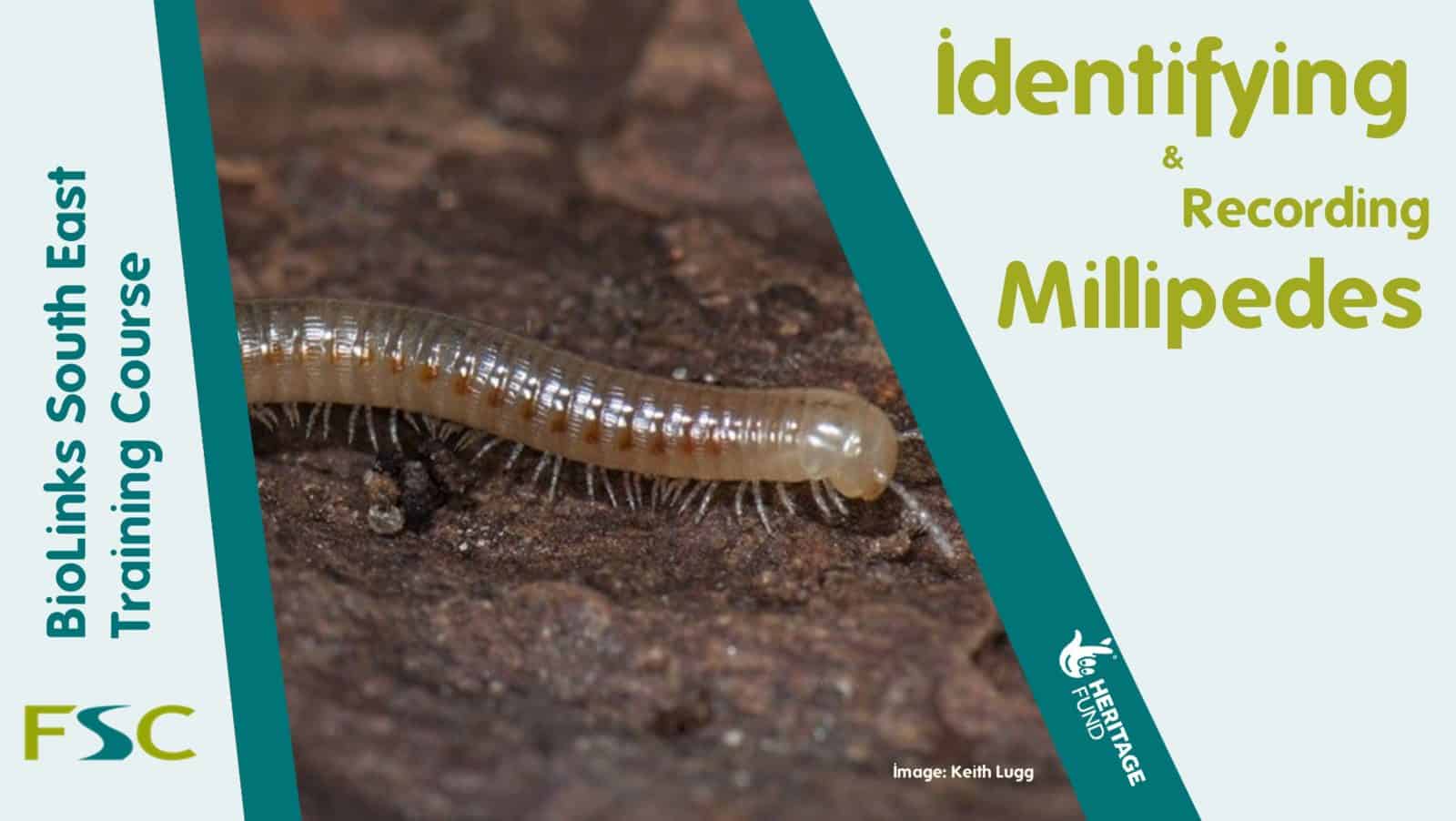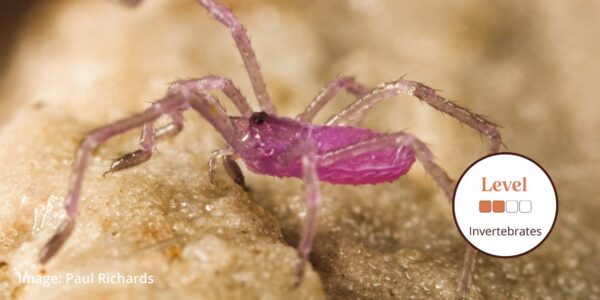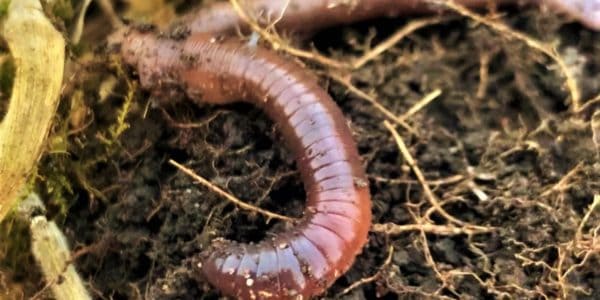This residential course incorporates everything you need to know to be able to accurately identify and record millipedes to species.
With a mix of classroom presentations, laboratory-based sessions, and field-based activities our expert tutor will guide you through the lifestyles, ecology, and morphology of UK millipedes. Attendees will be provided with detailed information on sampling equipment and techniques with practical hands-on opportunities to collect live specimens.
Attendees will use preserved specimens from our tutor’s teaching collection for identification to species-level using microscopes and identification keys; and our tutors will demonstrate best-practices for curation of a reference collection.
Information on invertebrate recording, submitting records and connecting with schemes, societies and groups will also be provided.
- Certificate upon course completion.
- Access to microscopes, specimen collection, lab equipment, field equipment and identification resources.
- Tuition from tutor specialising in millipedes.
- Please email [email protected] if you have any questions.
- Please note that this course will involve using specimens that have been killed and preserved
By the end of this course, you will:
- have a grounding in Britain’s millipede taxonomy and ecology
- be able to use external (morphological) features for specimen identification
- have used various collecting techniques for a variety of habitats and species
- gain practical experience using field guides and identification keys to determine specimens accurately to species-level
- gain practical experience observing millipede ID features using a microscope
- know how to curate your own personal reference collection
- be given guidance on how to take your interest further and contribute associated recording schemes
Tutor: Steve Gregory
Steve Gregory is a member of the British Myriapod and Isopod Group, one of the editors of the group’s annual Bulletin and organiser of the national Woodlouse Recording Scheme.
Steve is also author of Woodlice and Waterlice in Britain and Ireland (2009), an updated account of the distribution and habitat preferences of the British and Irish fauna. He has had an interest in woodlice, millipedes and centipedes for many years and has published a number of scientific papers on all three groups. His particular interests include the ecology and distribution (biogeography) of the British fauna and current projects include woodlice, millipedes and centipedes of heated ‘tropical’ glasshouses and those occurring in the south Wales valleys.
Course Fees
Resident (Sole Occupancy) £50.00
Course fees are subsidised by the FSC BioLinks project. Accommodation, meals and all course-related materials are included. If attendees who have booked together require a shared room please contact the centre to arrange this.
Please note that bathrooms may be shared and we are unable to guarantee en-suite bathrooms for any bookings.
Waiting List
If the course is full and you would like to be added to the waiting list, please email us at [email protected]g and let us know the name, date and location of the course you'd like to be added to the waiting list for.
What's Included
- Certificate upon course completion.
- Access to microscopes, specimen collection, lab equipment, field equipment and identification resources.
- Tuition from tutor specialising in millipedes.
- Please email [email protected] if you have any questions.
- Please note that this course will involve using specimens that have been killed and preserved
Bursaries and Subsidies
FSC BioLinks
FSC BioLinks is an exciting project for FSC in the South East and West Midlands, bringing together existing volunteers with skills in biological recording and identification, and new volunteers.
This project provides subsidised training courses, learning opportunities and digital tools focussed on invertebrate identification for anyone involved or interested in biological recording, to build and strengthen the community.
Invertebrates provide us with many useful ecosystem services, like pollination and decomposition, which we cannot survive without but their numbers are declining. Few people know how to identify or record invertebrates meaning there is a lack of data.
We are delighted to have been awarded a grant of £1.23 million from the National Lottery Heritage Fund for this project.
Before You Attend
Getting to FSC Juniper Hall
FSC Juniper Hall, Old London Rd, Mickleham, RH5 6DA
Direct enquiries: 01306 734501 (Mon-Fri, 9am–5pm) or email [email protected]
Public Transport
Train: Dorking Station (1.6 miles) – regular trains from London ( Victoria and Waterloo) and Horsham. Taxis are readily available outside the main station. Dorking Deepdene (1.6 miles) – trains from Reading, Guildford, Gatwick, Redhill and Reigate stop at Dorking Deepdene station. Box Hill and Westhumble (1 mile).
Bus: The 465 service runs between Dorking (opposite the main train station) to Kingston upon Thames and stops just outside the centre.
Road: From the north: From the junction 9 of the M25 take the A24 towards Dorking. After the Givons Grove roundabout turn left to continue on the A24 south towards Dorking for approximately 1 mile and then take the B2209 left into the village of Mickleham. Go through the village past the Church and the Running Horses pub and continue for about ½ mile. The entrance to Juniper Hall is on the left hand side immediately after Headley Lane. Please note that there is no entrance to the centre from Headley Lane. From the south: Join the A24 and head north towards Leatherhead. Go straight over Denbighs Vineyard roundabout and at the next roundabout (Burford Bridge) turn right towards Box Hill and Mickleham. Continue past the Burford Bridge Hotel and the turning for Box Hill and up a small hill. As you go over the top of the hill the centre is at the bottom of the hill on the right hand side.
What to bring
- Notebook and pencil
- Appropriate clothing and footwear for outdoor activity
- Hand lens (if you have one)
There will be a member of staff with first aid training and access to a first aid kit on site. If you have special medical requirements please let us know as soon as possible so we can plan the course.
Check-in & Check-out
- Check-in on the first day will be between 16:00 and 18:00 - if you need a later check-in, please contact the centre to notify them in advance
- Check-out on the final day will be at 09:30. We will arrange somewhere secure to store your luggage for the remainder of the day.
Sorry this course has ended



